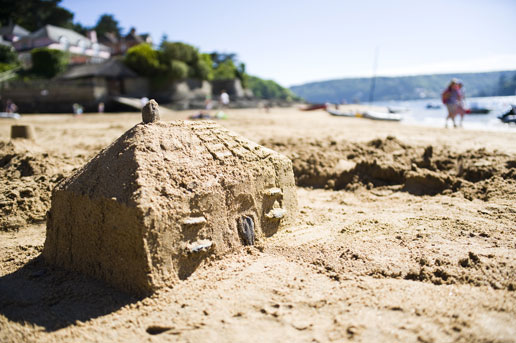Letting out a holiday home can be a great income source – but there are some key things to consider. By Vicky Shaw.
UK staycation holidays have been especially popular this year, with the pandemic making overseas travel so tricky.
This may have prompted those who already have a second home, or who are considering investing in one, to think about using them for holiday lets.
While the future impact of coronavirus on all businesses, including holiday rental properties, is uncertain, you may be considering investing in a holiday let as a long-term option right now, perhaps to supplement a retirement income in the years to come.
According to figures from Sykes Holiday Cottages (sykescottages.co.uk), owners earned £21,000 on average last year through their holiday lets.
But if you are thinking about a buy-to-let investment to tap into the staycation trend, there are certain things to consider before taking the plunge. Here, Bev Dumbleton, Sykes Holiday Cottages chief operating officer, shares five key tips…

1. Calculate your budget
First things first, take time to evaluate your finances to determine how much money you have to kick-start your investment in a holiday let. If you don’t already have a second home, you’ll have to weigh up the costs of buying one and paying the mortgage, while also factoring in budget for things like bills, maintenance and repairs.
To keep track of your budget for the project, look online for free templates and calculator tools or create your own document.
2. Location, location, location
Whether it’s the rugged moorland of the Peak District, seaside towns in South Wales, or stunning views in the Scottish Highlands, each region of the UK has its own unique character and something to offer holidaymakers.
According to Sykes’ data, the Peak District takes the top spot as the highest-earning region for holiday lettings in the UK, with a two-bed cottage generating £14,000 a year, on average, increasing to £27,000 for a four-bed.
Booking data also shows North Wales has been popular with holidaymakers this summer. The average income there is £12,000 for a two-bed and £22,000 for a four-bed. Elsewhere in the UK, investors can potentially expect to make on average £13,000 for a two-bed and £19,000 for a four-bed in the Highlands and islands of Scotland.
When choosing where to set up, also consider proximity to local amenities and the beach, as well as how parking is locally and whether a place has good transport links, as these will all affect revenue.
3. It’s in the detail
Furnishing your holiday let to a high standard will maximise the booking value and, therefore, potential earnings. As your property will be used by a lot of different guests, investing in good quality, durable furniture will also save you money in the long run. Be sure to choose your furnishings wisely – for example, leather sofas and hard floors may be far easier to keep clean than the fabric equivalents.
Remember that guests are looking for a ‘home away from home’ with added luxury, so you need to think carefully about who your target visitors are likely to be and kit your property out accordingly. For example, a two-person property in a rural location may be a base for a romantic couples’ break, so consider roll-top baths and hot tubs. A larger property on the Cornish coast is ideal for families, so invest in your outside space and a good selection of board games.
By making sure your guests have the best possible experience, you’ll also secure repeat customers, recommendations and five-star reviews, which all help to improve profitability.
4. Consider year-round appeal
This will ensure a steady flow of bookings. Properties with hot tubs, on average, earn more than 50% more than those that don’t. Other stand-out features, such as wood burning stoves and open fires, tend to be received very well by guests and encourage bookings all year round.
Making your holiday let pet-friendly will also help to drive bookings outside of the peak holiday season. Owners who accept short breaks in winter can also earn more, with people more likely to book long weekends away during this time.
5. Marketing is key
By contacting an agency as soon as you’re considering entering the market, you can get expert advice from the outset to avoid any potential pitfalls. Getting your pricing right is crucial, so research the competition and speak to experts to understand how to flex your pricing based on seasonal demand.
Photos are also key to showcasing your property and are incredibly important in driving bookings. Take photos year-round, if you’re planning to rent the property out throughout the year. Remember – the more images the better, but quality matters most. Also consider including images of local amenities to highlight what there is to do nearby.

